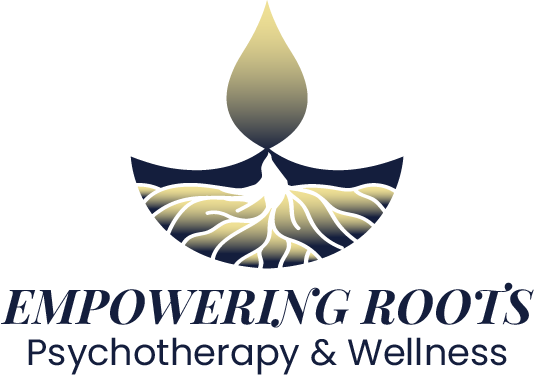Perfectionism & People-Pleasing Recovery in Etobicoke, ON
People-pleasing and perfectionism might have helped you avoid conflict and helped maintain the peace growing up, but now they're keeping you trapped. We understand the cultural and familial pressures that create these patterns and can help you find balance without losing your values.
Escape the Exhausting Cycle of People-Pleasing
Setting Healthy Boundaries
Learn to say no without guilt and protect your time and energy while maintaining important relationships.
Quieting Inner Criticism
Stop the harsh voice in your head that says you're never good enough, replacing it with self-compassion.
Finding Authentic Confidence
Build self-worth that doesn't depend on others' approval, opinions or perfect performances and appearances.
Perfectionism Recovery for South Asian High Achievers
For many South Asian and immigrant families, perfectionism and people-pleasing are seen as positive traits. You might have been praised for being the "good" child who never caused problems. But now these patterns are exhausting you and keeping you from living authentically.
Our Perfectionism Recovery services recognize that these patterns likely developed as intelligent responses to cultural and family pressures. We understand that recovery doesn't mean becoming selfish, it means learning to care for yourself with the same energy you give to others.
It's exhausting to live your entire life trying to earn love through being perfect all the time, saying yes even when you really want to say no, and trying to fit into the "perfect" box. Many people in our community struggle with these specific challenges:
Therapy for People-Pleasing and Cultural Achievement Pressure
Breaking Conditional Love Patterns
Perfectionism often develops when family love feels tied to achievements and behaviour. You might fear that any mistake will result in disappointment or withdrawal of affection.
Healing Core Unworthiness Wounds
People-pleasing masks deep beliefs about not being good enough just as you are. These fundamental self-worth issues need healing beyond just changing behaviours.
Discovering Your Authentic Preferences
Perfectionism disconnects you from knowing what you actually want versus what others expect. You might have lost touch with your genuine interests and desires.
Unlike trying to earn love, respect, and a place in your family by trying to be perfect in all aspects of your life, develop authenticity and confidence through therapy so that your life does not depend on other's approval or checking every box that culture and society believes you need to check off in order to be deemed worthy of love and respect.
What Life Looks Like After Perfectionism Recovery
Self-Compassion Over Self-Criticism
Recovery work helps you develop an internal voice that's supportive rather than harsh, leading to increased confidence and emotional resilience.
Balanced Achievement Motivation
Transform perfectionist drive into healthy ambition that motivates rather than paralyzes, allowing you to take risks and learn from mistakes.
Energy for What Matters
Stop wasting energy on tasks that don't require perfection, freeing up time and emotional resources for relationships and activities you truly value.
Authentic Relationship Building
Perfectionism recovery helps you connect with others as your real self rather than a performance, creating deeper and more satisfying relationships.
How I Help Perfectionists Find Balance Without Losing Excellence
I know that traditional perfectionism treatment doesn't always address the unique cultural factors that create these patterns in South Asian and immigrant families. That's why I've developed an approach that honours both evidence-based recovery methods and cultural understanding.
Through IFS parts work, self-compassion practices, and family systems work, we'll work together to address both your perfectionist behaviours and the cultural beliefs that fuel them. My approach recognizes that recovery doesn't mean abandoning your values around excellence and family; it means finding balance.
I understand the fear that setting boundaries will damage relationships, the guilt that comes with prioritizing your needs, and the challenge of maintaining cultural values while protecting your mental health.
Perfectionism Therapist Who Understands Cultural Expectations
As someone who understands both the clinical aspects of perfectionism and the cultural pressures that create these patterns, I provide a space where your drive for excellence is reframed as a strength rather than a problem.
I've worked with many South Asian and immigrant clients who struggle with perfectionism while trying to maintain family relationships and cultural values. I know that recovery doesn't mean becoming lazy or uncaring, it means learning healthy standards that motivate rather than paralyze.
My training in perfectionism recovery, combined with my understanding of cultural achievement pressure, allows me to provide support that honours your values while protecting your well-being.
Common Questions about People-Pleasing Recovery
It's normal to feel unsure or have questions. Here are some common concerns, so you can feel more at ease about taking this step.
Will recovery make me lazy or lower my standards?
No. Recovery from perfectionism means finding balance between healthy striving and harmful perfectionism. You'll still care about doing well, but you won't be paralyzed by fear of making mistakes.
What if setting boundaries damages my relationships with family?
Healthy relationships can handle boundaries. While some family members might initially resist your changes, most relationships actually improve when both people feel respected and authentic.
How do I know if my standards are too high or if I'm just making excuses?
This is a common concern for perfectionists. We'll help you develop realistic standards that push you to grow without causing unnecessary stress or avoiding opportunities due to fear of imperfection.




